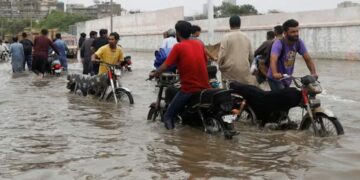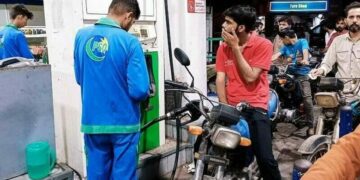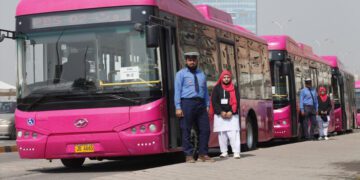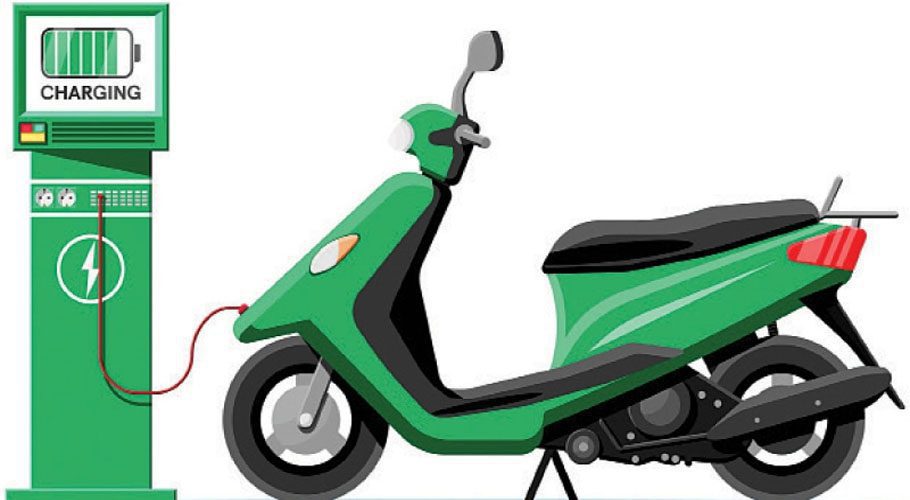![]() Follow Us on Google News
Follow Us on Google News
Over the past 10 to 12 years, the Gulf Co-operation Council (GCC) region, which comprises Bahrain, Kuwait, Oman, Qatar, Saudi Arabia and the United Arab Emirates, has undergone rapid economic, demographic and social changes. Since 1998, the GCC’s real GDP has expanded by an annual average of 5.2%. Meanwhile, the population has risen from just over 28m in 1998 to around 52m in 2020.
As US economic growth has slowed, GCC investors have begun to diversify their assets more widely, making investments in Asia, Africa and within the Gulf region itself. Industrializing economies in Asia are intensifying their trade links with the Gulf and some of the world’s poorest countries have become increasingly dependent on remittances from the millions of foreign workers transforming the skylines of Gulf cities.
The seizure in global financial markets, the recent fall in the oil price and the economic slowdown in key trading partners are all beginning to have an effect on the GCC economies. Yet over the next decade or more, strong economic growth should be underpinned by the GCC’s demographics and energy advantages and by a range of major investments that are already underway.
GCC Countries will grow in importance as an economic and trading hub. By the end of 2020, the GCC is projected to be a US$2trn economy, providing nearly one-quarter of the world’s oil supplies as well as increasing quantities of petrochemicals, metals and plastics. As economic weight gradually shifts southwards and eastwards, emerging markets will become increasingly important trading partners and investment destinations. Gulf investors and sovereign wealth funds are likely to diversify their assets into Asia and Africa, and the region is likely to export more of its oil to industrializing countries.
There is likely to be closer economic and political integration between GCC countries. Under our core scenario, the GCC is likely to continue gradual efforts at economic integration, including a single currency, a single central bank and greater harmonization of legal and regulatory environments. But political will is key. Economic integration will depend on good political relations, but will take precedence over political integration. The development of a common foreign policy or a strengthening of shared security forces remains a longer-term project.
There will be a greater focus on manufacturing. Production of hydrocarbons in the GCC could rise substantially by 2025, but one likely trend is that the region will be seeking to export a smaller proportion of its oil as crude – a low value-added commodity that offers few employment opportunities. Instead, GCC states will aim to turn more of their oil into refined products or petrochemicals and to use their oil and gas resources as feedstocks for industries that will add more value and provide more jobs. However, the GCC will remain dependent on foreign labor by 2025 despite a range of efforts to encourage the employment of nationals.
GCC spending on food imports has almost doubled from US$24bn in 2008 to US$49bn by in 2020. An important reason for this growth in imports is water scarcity, which means that domestic agricultural production tends to be costly. Between 2008 and 2020, GCC countries have explored wide-ranging purchases of agricultural land in regions such as Africa, Central Asia and Southeast Asia, in order to strengthen food security. While these investments could boost agricultural production in poor countries, there is a risk of political backlash, especially in times of food shortages.
The COVID-19 pandemic has altered the dynamics of the global economy, and the GCC is feeling its effects too. As of early 2020, the region’s GDP was projected to grow by 2.5 percent for the year. By April, that had shrunk to a contraction of 2.8 percent and expected to be negative by the end of year 2020.
However, by taking appropriate measures during the crisis and in its aftermath, GCC governments have had a significant impact on how the economy recovers. Thus far, GCC governments have taken important steps to mitigate the crises. They correctly prioritized the provisions of healthcare to their citizens.
They imposed varying degrees of lockdown to contain the pandemic and to prevent the contagion from overwhelming the healthcare system. They have provided economic support, such as unemployment assistance to individuals and households, and financial aid to small businesses.
The aftermath of the economic and market turbulence due to Covid-19 has redefined the landscape for GCC member states. A relatively bleak growth outlook requires a shift in expectations – with recovery unlikely until 2021.
However, some GCC countries such as the UAE, Kuwait and Saudi Arabia are well placed to ensure this recovery becomes a reality as their strong Sovereign Wealth Funds (SWFs) will play a vital role in helping the economies get back on their feet.
As with other regions globally, the growth outlook for the Middle East has suffered from the economic shutdown at the mercy of the pandemic. This has triggered volatile and declining asset prices, collapsed oil prices, shattered investor sentiment, negligible consumer spending and sweeping monetary and fiscal responses.
Market participants are already eyeing next year for economic recovery. This is fueled by expectations of easing in cuts in oil production to some extent and a resumption in demand from consumers that will drive activity in non-oil sectors.
The UAE, Saudi Arabia and Kuwait are particularly well-positioned to fulfil such optimism as they can manage relatively large deficits due to their levels of public foreign assets.

















